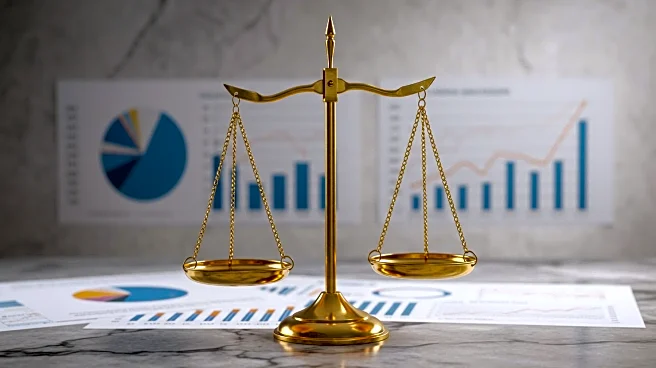What's Happening?
The US economy is currently experiencing a period of uncertainty, with mixed signals from various economic indicators. Despite concerns about potential stagflation due to tariffs and immigration policies under President Trump, consumer spending has remained more resilient than expected. The economy grew at an annual rate of 1.2% in the first half of the year, a decrease from the previous year. However, the labor market is showing signs of distress, with job creation nearly stagnant in recent months and an increase in discouraged workers. The US central bank is in a state of paralysis, awaiting clearer data before making decisions on interest rates. The firing of the US Bureau of Labor Statistics commissioner by President Trump following a disappointing jobs report has added to the uncertainty.
Why It's Important?
The current economic situation has significant implications for various stakeholders in the US. The resilience in consumer spending offers a glimmer of hope for businesses and investors, suggesting that the economy might avoid a severe downturn. However, the sluggish growth and labor market issues could lead to broader economic challenges, affecting employment rates and consumer confidence. The central bank's indecision on interest rates could impact financial markets and borrowing costs. The firing of the BLS commissioner highlights tensions between the administration and economic experts, potentially influencing public policy and economic strategies.
What's Next?
The US economy's future trajectory remains uncertain, with potential developments hinging on upcoming economic data releases and policy decisions. The central bank's response to new data will be crucial in determining interest rate adjustments. Businesses and investors will closely monitor consumer spending trends and labor market conditions for signs of recovery or further decline. Political leaders may face pressure to address economic concerns, particularly in light of the upcoming election cycle. The administration's handling of economic policies and expert advice will likely continue to be scrutinized.










